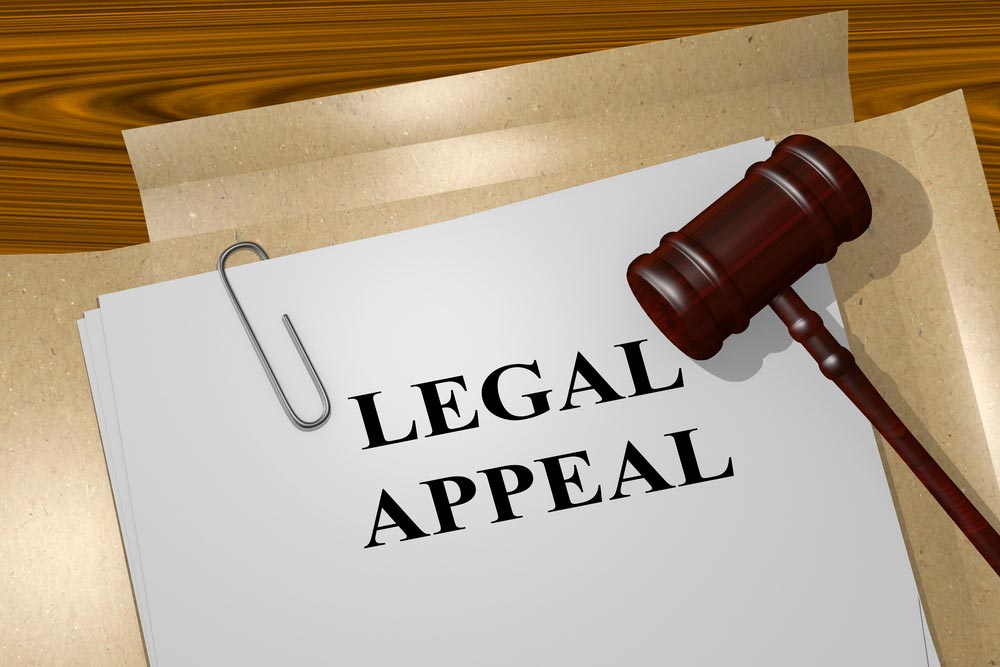There isn’t much that’s more devastating than a wrongful criminal conviction. Not only does it affect the person being convicted, but it also affects his or her family. While a wrongful conviction may make you feel like all hope has been lost, you still have options. One of them is a criminal appeal.

How a Criminal Appeal Works in Texas
Anyone who has been convicted of a crime in Texas has the right to request a second court take a look at the conviction. This court will be given a record of what happened at the trial, and the person being convicted can give the second court what’s called an “appellate brief” (which will have arguments for why the conviction was improper). The State will also be required to file an appellate brief. An appeal is usually limited to what happened at the trial or in court, so any issues that weren’t raised during the trial can’t be included in an appeal.
Most felony criminal cases are heard in one of the 477 District Courts in the state. If someone has been convicted in the District Court, he or she can appeal the conviction to one of the 14 Courts of Appeals. If the conviction still stands after the appeal, that person has no automatic right to take it to the highest court for criminal cases (which is the Court of Criminal Appeals). But he or she can request that the Court take a look at the conviction.
Because the Court of Criminal Appeals doesn’t look at every single conviction in the State of Texas, a convicted person who wants them to look at his or her case can file a Petition for Discretionary Review (which will request that the Court of Criminal Appeals accept a case for review). From there, the Court will decide whether they want to examine your case. In rare circumstances, the Court of Criminal Appeals will accept a case for review without receiving a Petition for Discretionary Review.
Getting Released on Bail During a Criminal Appeal
If a defendant has been convicted of a felony and has been sentenced to a prison term of at least 10 years, he or she won’t be eligible for bail. The same will be true for people who have been convicted of certain drug offenses. The court will also deny bail if the judge believes the convicted person won’t turn himself or herself in if it has been affirmed during the appeal, and the same will be true if the judge believes that person will commit another crime.
Some of the factors that the court will consider in setting bail will include the following:
- The length of sentence.
- Past history of compliance with bail and making appearances required by the court.
- Ties to the community (such as family, friends, and employment).
Be sure to speak to a qualified attorney for more information.
Factors for Being Granted a Criminal Appeal
Some of the things that the Court will consider for granting a criminal appeal may include the following:
- Whether there’s an important question that should be decided by the Court of Criminal Appeals.
- Whether there’s a conflict between different courts of appeals.
- Whether a statute is unconstitutional.
- Where the Court of Appeals addressed an issue during the appeal.
- Whether there’s an important issue that warrants the attention of the Court of Criminal Appeals.
A Petition for Discretionary Review should provide and explanation for why the Court of Criminal Appeals should grant the request. If the court accepts the petition, they will usually look at whether the court of appeals made any errors in judgment. They won’t necessarily look at whether there were any errors in the trial.
Arguments That Can Overturn a Conviction in Texas
Every case is different, so each one has to be evaluated for any potential arguments that may be made on appeal. Here are some of the arguments that can overturn a criminal conviction in Texas:
- Insufficient Evidence.
- Ineffective Assistance of Counsel.
- Improper Admission of Confession.
- Admission of Improper Evidence.
- Fruit of the Poisonous Tree,
- Double Jeopardy.
- Denial of a Right to a Speedy Trial.
- Statute of Limitations.
- Failure to Disclose Exculpatory Information.
- Prosecutorial Misconduct.
- Constitutional Errors.
- Errors in Jury Instructions
- Errors in Jury Selection.
If you want to appeal your case and are looking for one of the best criminal lawyers in Corpus Christi, TX, be sure to get in touch with Gale Law Group. We have an experienced team who would be happy to speak with you about your case.
